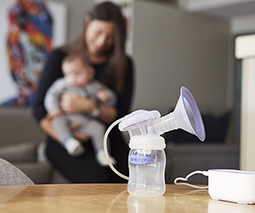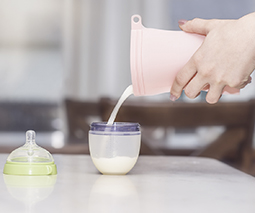Link between breastfeeding difficulties and depression in new mums

More support is being sought for new mums, in the wake of research revealing a link between breastfeeding difficulties and depression in Australian mums. However, it’s unclear if breastfeeding difficulties are leading to depression, or if mental health issues are influencing new mums to stop breastfeeding.
The research, released today, has prompted experts from Murdoch Childrens Research Institute to call for greater awareness and support for mums experiencing depression and difficulty breastfeeding.
More than 1500 Australian mums were involved in the study, which found that while 95 per cent of them initiated breastfeeding, three months after birth a quarter of them had stopped. By the time their baby was six months old, 40 per cent were no longer breastfeeding. The research revealed those mums who had depressive symptoms when their baby was three months old had drastically lower rates of breastfeeding once their baby was six months old.
“Women’s decisions around infant-feeding are influenced by a range of psycho-social factors and early postnatal depressive symptoms appear to be a significant part of this picture, as either a cause or consequence of decisions to cease breastfeeding,” explains study lead author Dr Hannah Woolhouse.

Dr Woolhouse says her study reveals that at around the three month postpartum mark, differences emerge in rates of breastfeeding between those women who report depressive symptoms and those who don’t.
“We found significantly lower rates of breastfeeding at four, five and six months postpartum in women who had depressive symptoms at three months. It is very difficult to determine whether the depressive symptoms or the breastfeeding difficulties came first,” she says. “What we can say conclusively, based on our research, is that there is a strong and robust association between maternal depression at three months postpartum and the duration of breastfeeding over the first six months.”
Dr Woolhouse says the early identification and treatment of these symptoms may help improve the length of breastfeeding in new mums. “Likewise, appropriate and compassionate support for women experiencing breastfeeding difficulties may have the added benefit of reducing maternal depression.”
Other research has previously uncovered that the most common reasons women stop breastfeeding before their baby is six months old are nipple pain, low milk supply and latching difficulties, young maternal age, single relationship status, lower levels of maternal education, socio-economic disadvantage, being a smoker and inadequate levels of social and/or professional support.
For more information and help with breastfeeding, head to the Australian Breastfeeding Association or browse our extensive breastfeeding archives.









